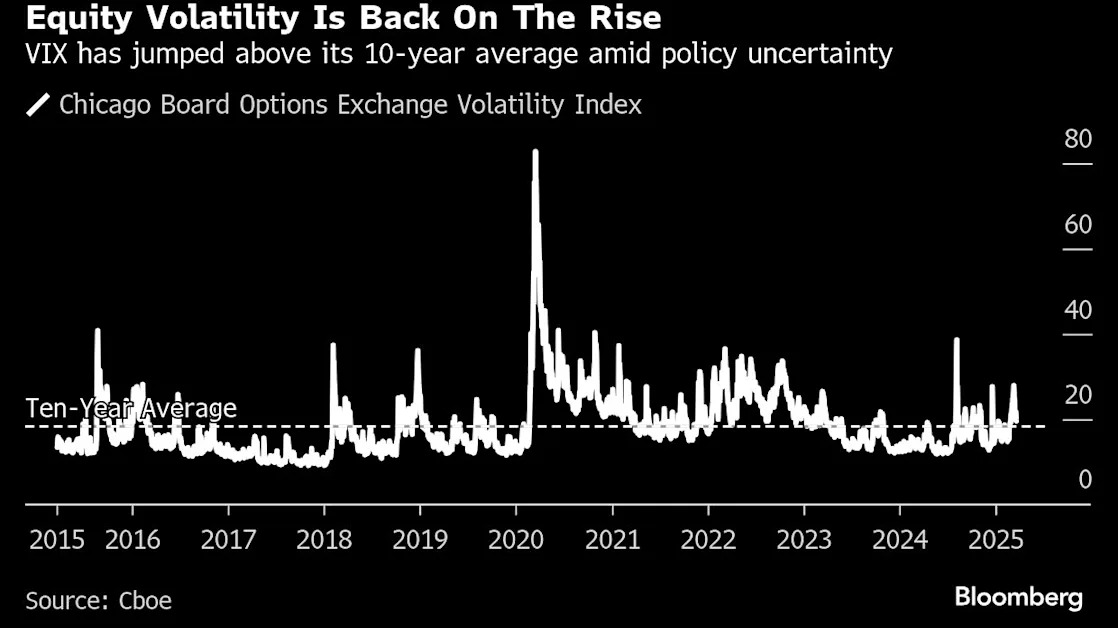
JPMorgan Enters an Infamous Short-Volatility Market With ETN
(Bloomberg) -- With worries over US trade policy roiling Wall Street, JPMorgan Chase & Co. is repackaging a well-known strategy that would profit if the turbulence subsided.
Most Read from Bloomberg
The Inverse VIX Short-Term Futures ETNs, ticker VYLD, provides exposure to an index shorting futures tied to Wall Street’s fear gauge, known as the CBOE Volatility Index or VIX.
These kinds of products have had a spotty history on Wall Street, following several high-profile blowups that came when calm markets suddenly went haywire. Their mechanics can be difficult for even sophisticated investors to understand and market participants have pointed out past design flaws that ramped up risk, though strategies have evolved in recent years to offer protective buffers.
The JPMorgan investment-bank strategy is designed to gain 1% for every point that VIX futures fall, before accounting for fees and returns on cash. It works by scaling up exposure to futures when markets grow turbulent, allowing investors to benefit if volatility subsequently falls.
“This is a unique situation,” said Todd Sohn, senior ETF strategist at Strategas. “Shorting volatility — through a structure that really doesn’t see much attention anymore: an ETN.”
Concerns over how White House tariff policies will impact US growth and inflation have dragged the S&P 500 nearly 8% from its record high and sent the VIX hovering above its 10-year average for the last four weeks. Still, investors looking to use products such as VYLD to bet that things will get less turbulent from here will have to face some unnerving history.
In a 2018 event dubbed “Volmageddon,” the VelocityShares Daily Inverse VIX Short-Term ETN imploded after dropping more than 90% in a single session, while the VelocityShares Daily 2x VIX Short-Term ETN (TVIX) was delisted during the pandemic. In 2022, Barclays Plc spurred wild price moves after it committed a blunder on two popular exchange-traded notes. A global market selloff sparked by an unwind of the Japanese yen carry trade caused a rapid spike in the VIX last year, though the index quickly reversed that move.
Nevertheless, JPMorgan has seen “increased interest from the market for volatility products over the last few years,” it said in emailed comments.